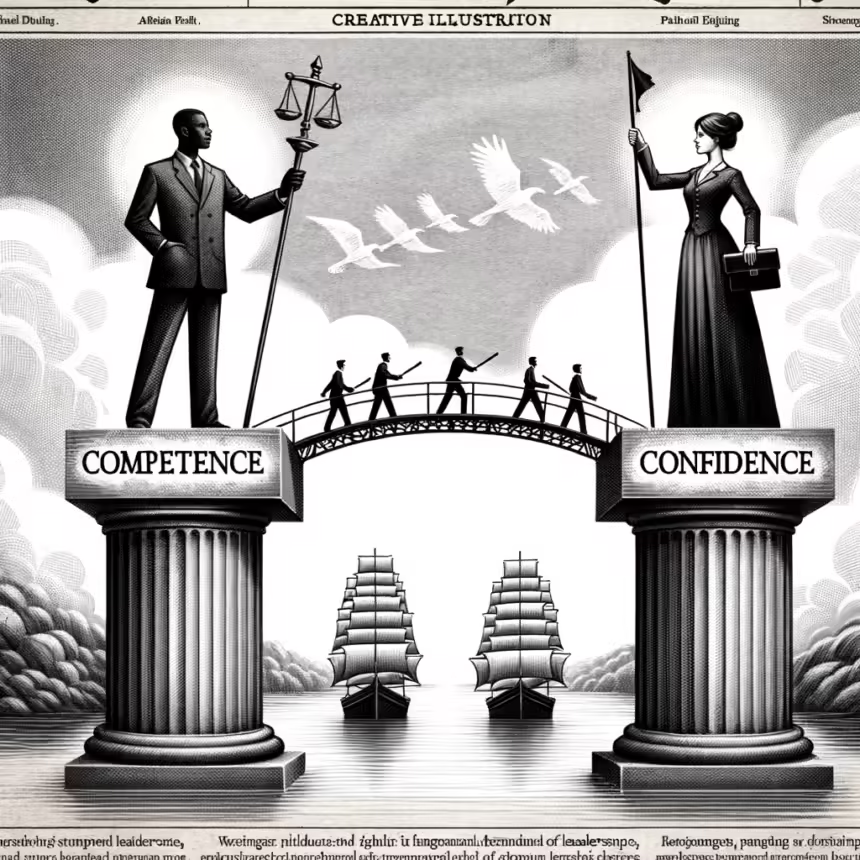In the dynamic landscape of leadership, the balance between competence and confidence emerges as a pivotal determinant of effectiveness and influence. The interplay of these attributes not only shapes a leader’s ability to guide and inspire but also influences the perception and performance of their teams. Understanding and nurturing this balance can significantly enhance the impact of leadership within any organization. This article delves into the essence of the competence-confidence nexus, outlines strategies for augmenting competence among leaders, and discusses ways to foster confidence without veering into arrogance, providing a comprehensive guide for those aiming to refine their leadership prowess.
Understanding the Competence-Confidence Nexus
Competence and confidence are intrinsically linked, each feeding into and bolstering the other. Competence, or the ability to effectively perform and lead in one’s role, provides a solid foundation for confidence. This confidence, in turn, is not merely a belief in one’s abilities but also a reflection of proven competence, thereby creating a virtuous cycle. However, the imbalance where confidence outstrips competence can lead to overestimation of abilities and potential failures, while the reverse may result in underutilization of skills and missed opportunities.
The nexus between competence and confidence is dynamic, requiring continuous development and adjustment. Competence grows through experience, learning, and the acquisition of knowledge and skills. As competence increases, so does the likelihood of success in leadership tasks, which naturally boosts confidence. This interdependence suggests that enhancing one invariably impacts the other, making it critical for leaders to invest in both their skill sets and their self-belief.
Understanding this relationship is crucial for leaders aiming to maximize their effectiveness. Leaders must recognize their current position within this nexus to identify areas for improvement. Whether it involves bolstering their competence in specific areas or working on their confidence levels, acknowledging and addressing the gaps can lead to more balanced and effective leadership.
Strategies for Enhancing Competence in Leaders
One essential strategy for enhancing competence involves continuous learning and development. Leaders should seek out opportunities for professional growth, such as workshops, seminars, and courses that expand their knowledge base and skill set. Staying abreast of industry trends and innovations also ensures that leaders can adapt and respond effectively to changing environments.
Mentorship plays a critical role in developing competence. Experienced mentors can offer insights, guidance, and feedback that accelerate the learning curve for leaders. This relationship not only helps in refining leadership skills but also provides a sounding board for decision-making and strategy formulation, thereby enhancing overall competence.
Practical experience is irreplaceable in building competence. Leaders should actively seek challenging projects and roles that stretch their abilities and force them out of their comfort zones. These experiences can be transformative, providing real-world opportunities to apply knowledge and skills, which in turn solidifies competence and prepares leaders for more complex challenges.
Boosting Confidence Without Breeding Arrogance
Confidence in leadership is cultivated through a combination of self-awareness, positive reinforcement, and success experiences. Leaders must develop an acute awareness of their strengths and weaknesses, embracing them as opportunities for growth rather than reasons for self-doubt. This self-awareness fosters a grounded confidence that is based on realistic self-appraisal rather than unfounded arrogance.
Positive reinforcement from peers, mentors, and stakeholders can significantly boost a leader’s confidence. Constructive feedback, recognition of achievements, and encouragement can reinforce a leader’s belief in their abilities and motivate them to tackle challenges with greater assurance. However, it is crucial that this reinforcement is balanced and honest, avoiding excessive flattery that might foster arrogance.
Finally, creating an environment where success is celebrated and learned from can contribute to confidence building. Leaders should be encouraged to set achievable goals, allowing them to experience and reflect on successes regularly. This not only reinforces competence but also builds a robust sense of confidence that is firmly rooted in real-world achievements, distinguishing it from the unfounded self-belief that characterizes arrogance.
The intricate dance between competence and confidence is central to effective leadership. By understanding their interdependence, actively working to enhance competence, and carefully nurturing confidence without tipping into arrogance, leaders can significantly improve their effectiveness and the performance of their teams. This balanced approach not only fosters a positive organizational culture but also prepares leaders to face the challenges of the modern business world with resilience and adaptability. In sum, the journey towards becoming a truly impactful leader is one of continuous self-improvement, where the cultivation of both competence and confidence plays a crucial role.
Inspired by Research: Competent Leaders Know The Limits of Their Expertise published on hbr.org


Leave a Reply